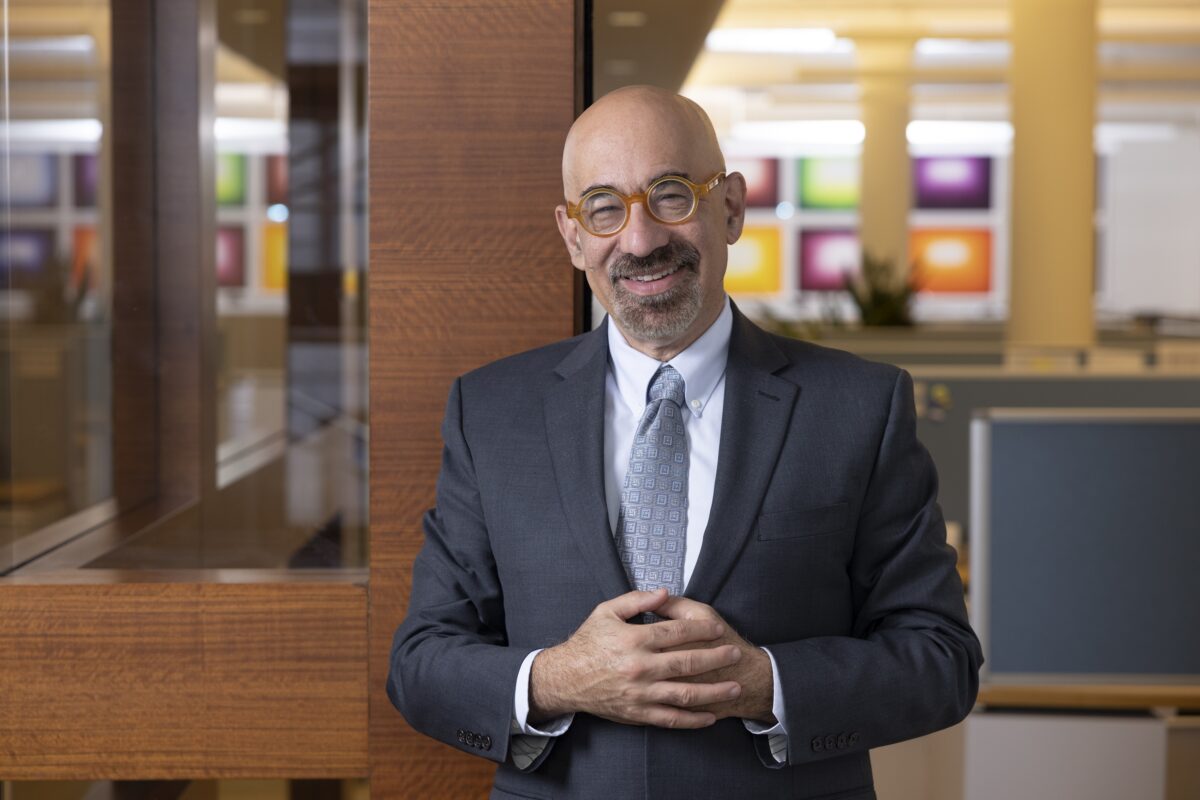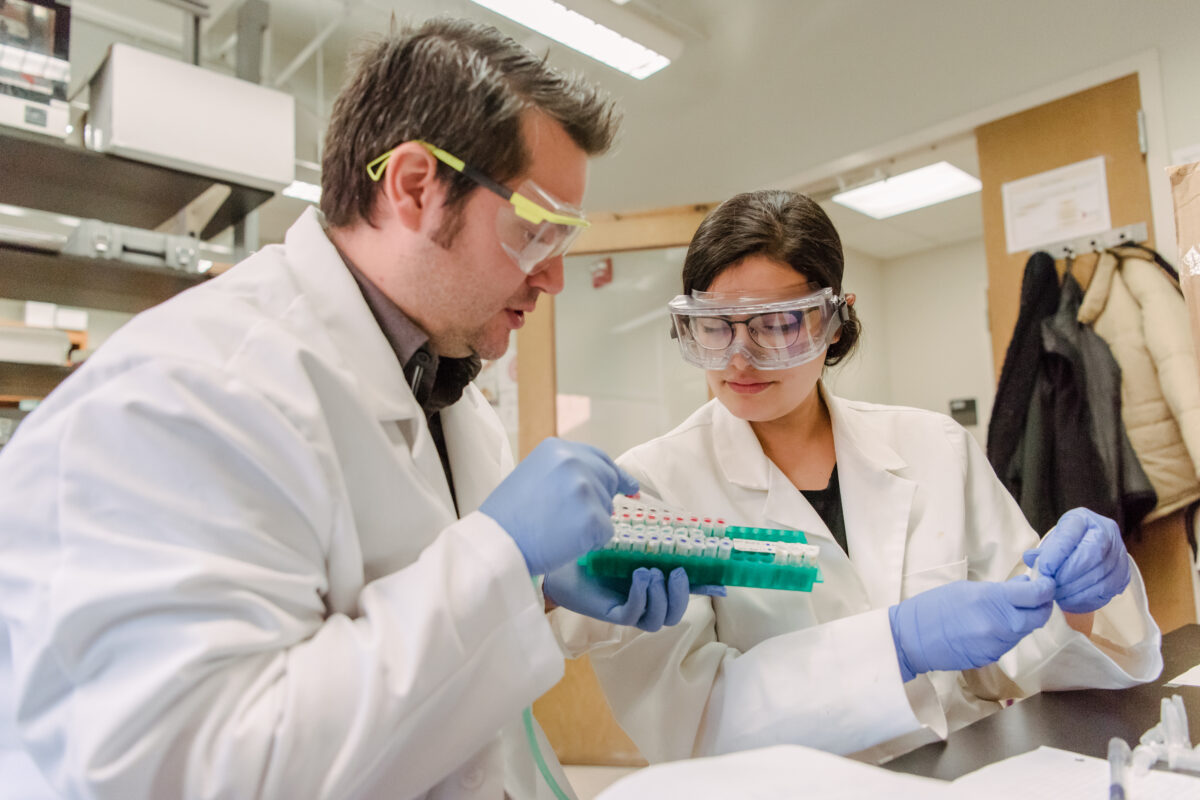
The Simons Foundation and its sister organization, Simons Foundation International, have pledged $2.5 million over five years to support the Meyerhoff Scholars Program. Continued partnership between UMBC and Simons will also generate opportunities for program alumni and support Meyerhoff replication efforts at other institutions.
For almost 30 years, the Simons Foundation has worked to support advances in mathematics and basic science by funding external scientists and, more recently, through research at its own Flatiron Institute in New York City. Simons has also done outreach work through the Math for America program, which seeks to enhance the math and science literacy of children in New York City public schools. The gift to UMBC, however, represents a new emphasis on supporting the development of a diverse pipeline of STEM professionals.
Partnering to diversify STEM
“I have long admired the UMBC Meyerhoff program for its significant impact on training outstanding students from diverse backgrounds. It is an important model for other universities, and its alumni are at the forefront of scientific research,” says David Spergel, president of the Simons Foundation and Simons Foundation International. “I am proud that the Simons Foundation and Simons Foundation International can partner with UMBC through support of this program.”
 David Spergel, president of Simons Foundation and Simons Foundation International and a longtime admirer of President Hrabowski and the Meyerhoff Scholars Program (courtesy of Simons Foundation)
David Spergel, president of Simons Foundation and Simons Foundation International and a longtime admirer of President Hrabowski and the Meyerhoff Scholars Program (courtesy of Simons Foundation)
Craig Wesley, manager of diversity, equity, and inclusion at the Simons Foundation, has also been following President Freeman Hrabowski’s work for years. When Wesley started in his role a little over a year ago, he undertook a study to see what programs existed that were already successfully helping diversify the STEM pipeline. The Meyerhoff Scholars program jumped out as a leader in that space.
“The vision became, how could we replicate that model here in the New York area?” Wesley says. “We needed to find the right institutional partner to launch this work.” As it turned out, UMBC was the perfect fit.
Immediate impact
The new partnership will also create summer research opportunities for Meyerhoff Scholars at the Flatiron Institute. Naiyah Lewis ’23, M31, computer science,is already in New York for a summer internship with Natalie Sauerwald, a Flatiron Research Fellow with a focus on computational techniques in genomics.
This new grant will support scholarships for Meyerhoff Scholars and serve as a dedicated funding source for Summer Bridge, a cornerstone of the Meyerhoff experience undertaken by Scholars before their first year at UMBC. During Summer Bridge, Scholars bond as a community and internalize what it means to be a Meyerhoff Scholar. This includes the values of collaboration, leadership, service, professionalism, and academic excellence—alongside hard work and grit.
 Abby Cruz ’18, biological sciences, a Meyerhoff affiliate and MARC U*STAR Scholar, conducts research with Fernando Vonhoff. (Marlayna Demond ’11/UMBC)
Abby Cruz ’18, biological sciences, a Meyerhoff affiliate and MARC U*STAR Scholar, conducts research with Fernando Vonhoff. (Marlayna Demond ’11/UMBC)
Meyerhoff alumni will also benefit. They will be invited to apply for Transition to Independence Awards through the Simons Collaboration on the Global Brain and the Simons Collaboration on Plasticity and the Aging Brain. These large awards target Ph.D. and M.D./Ph.D. scientists from underrepresented groups who are currently in training positions and seeking tenure-track roles. Postdoctoral positions may also be available for Meyerhoff Scholar alumni at the Flatiron Institute.
“UMBC and Meyerhoff are excited to partner with the Simons Foundation in advancing our efforts to promote inclusive excellence and diversify the nation’s STEM workforce,” says Keith Harmon, director of the Meyerhoff Scholars Program.
Ripple effect—amplified
In addition to helping individual students and alumni, the growing partnership between UMBC and Simons will also advance a larger, shared goal of both institutions: launching more programs modeled on the Meyerhoff Scholars. UMBC staff and faculty involved with Meyerhoff will work with SUNY Stony Brook to create a Meyerhoff-like program within the public university system in New York.
“We are committed to helping increase the diversity of the STEM workforce,” Spergel says. “We see our collaboration with UMBC as key to helping us reach that goal through partnerships, in part by helping to adapt the Meyerhoff model at Stony Brook.”
As the partnership between UMBC and the Simons Foundation develops, the institutions hope their collaborative work will amplify the ripple effect already occurring across the country as Meyerhoff alumni advance in their careers. As more students get to experience the support offered by Meyerhoff and programs like it, they, too, will join the ranks of these alumni and make their own impact.